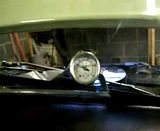Rubythursday
Member
I'd put my money on the pressure sensor. Be aware that there are a few variants, the pressure range is stamped on the top of the sensor.

chrisyork said:I must say, I wouldn't have any issues with 60psi@3000rpm.
Chris
DaveHerns said:This used to be standard advice with Ford V6 Esssex engines for the same reason - pump drive shearing
stina said:Hi Dave , Harvey . Yeah agree , i never rev her hard at the best of times , and keep it below 2k rpm until warmed up . Dave , the 3 liter granada , that'll be the one with 2 cylinders missing i guessParked next to a coupe version on the prom this afternoon . He had the bonnet up and all , then i opened mine , then he went home :shock:
:shock:quattro said:stina said:Hi Dave , Harvey . Yeah agree , i never rev her hard at the best of times , and keep it below 2k rpm until warmed up . Dave , the 3 liter granada , that'll be the one with 2 cylinders missing i guessParked next to a coupe version on the prom this afternoon . He had the bonnet up and all , then i opened mine , then he went home :shock:
Granada Coupe? - oooh very nice. I do like them 8)
Nice, very nice. Nicer with V8 in it, but still love 'em.
Getting back to high volume oil pumps on the Rover V8 - the uprated gears for the P6 are the same as the SD1 pumps, so I don't see why they should cause any trouble with shearing teeth?
Richard
They used to round the corners off the hex drive, I never saw one actually shear
DaveHerns said:I wasn't sure if it was the hex drive rounding off or the nylon teeth falling off the cam wheel
